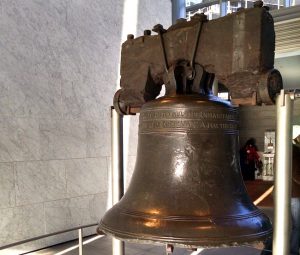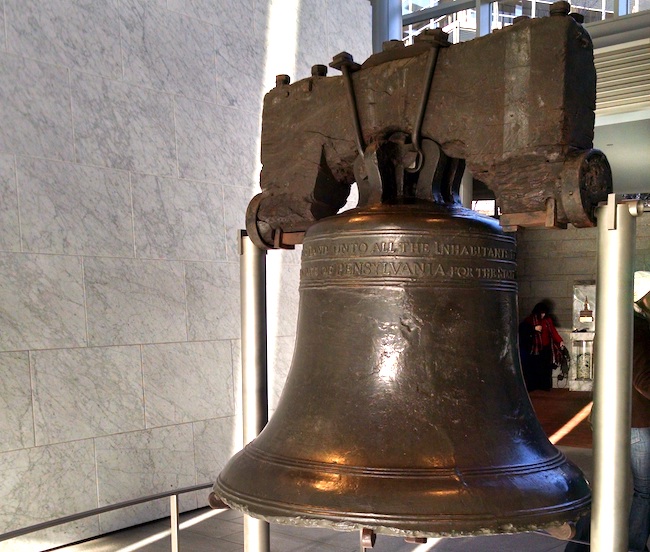 Inscribed on the Liberty Bell in Philadelphia is a verse from this week’s Torah Portion, Lev. 25:10. “Proclaim liberty throughout all the land unto all inhabitants thereof.” This verse is about the Jubilee year, the 50th year on the Jewish calendar when indentured servants were freed, and all leased fields returned to their original owners. It always seemed strange to me why the Founding Fathers of the United States chose a verse which specifically referred to servants and fields, when their intention was to express the theme of liberty. Surely they were inspired by the words “all the inhabitants thereof†which implies freedom for all, but that only begs the question — Why does the verse refer to a general freedom, when in reality the “freedom” granted was limited to the servants and leased fields?
Inscribed on the Liberty Bell in Philadelphia is a verse from this week’s Torah Portion, Lev. 25:10. “Proclaim liberty throughout all the land unto all inhabitants thereof.” This verse is about the Jubilee year, the 50th year on the Jewish calendar when indentured servants were freed, and all leased fields returned to their original owners. It always seemed strange to me why the Founding Fathers of the United States chose a verse which specifically referred to servants and fields, when their intention was to express the theme of liberty. Surely they were inspired by the words “all the inhabitants thereof†which implies freedom for all, but that only begs the question — Why does the verse refer to a general freedom, when in reality the “freedom” granted was limited to the servants and leased fields?
Imagine you owned and lived in a house for fifty years and were then told the government decided to seize your property to build a highway. Even if they compensated you for the property at market value, you might still feel a sense of unfairness. This was the home you raised your family in, that you lovingly decorated and maintained as your own. What right does the government have to seize your property without your consent? In the context that the government gave you the original permission to purchase property on its land, with the authority to withdraw that permission when necessary, this would make sense. The property may have appeared to be yours, but ultimately it was not.
All who witnessed the servants and fields being released from ownership understood that neither are truly human property. G-d allowed them to be leased, rather than truly purchased, for a specific amount of time. All inhabitants understood that they really do not have ownership of their property, that G-d is the ultimate owner of everything.
We can then see the freedom this proclaims throughout the land. While owning property does give us a sense of independence, it comes with the responsibility to maintain the investment, and to make sure the return on that investment is profitable. We then desire to acquire more property and thus earn more profit, to be able to live a more wealthy lifestyle. The control the desires to shop for more and buy more can have over us is a form of bondage. It is self-imposed, but an all too common weakness.
The acknowledgement that our possessions, and all the successes that enabled us to purchase our property, are really gifts from G-d, sets us free from the bondage of desire. The focus of life turns to the spiritual, the need to build a closer relationship with the Source of all Blessing. As a consequence, the drive for physical pursuits and pleasure is weakened and redirected towards the spiritual – a truly liberating endeavor. (Based on Sefer Taam V’Daas)
I’m not sure this was the intention of the founding fathers, but it’s an approach to life we can all afford to invest in. Spiritual investment pays eternal dividends!




